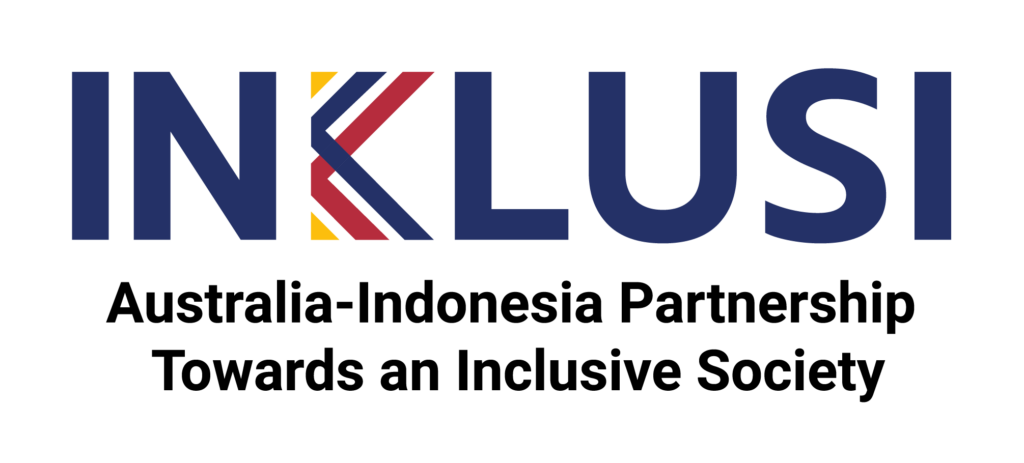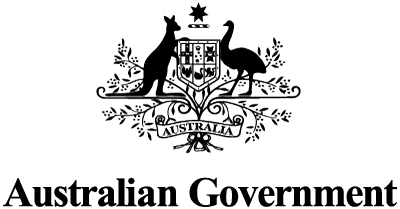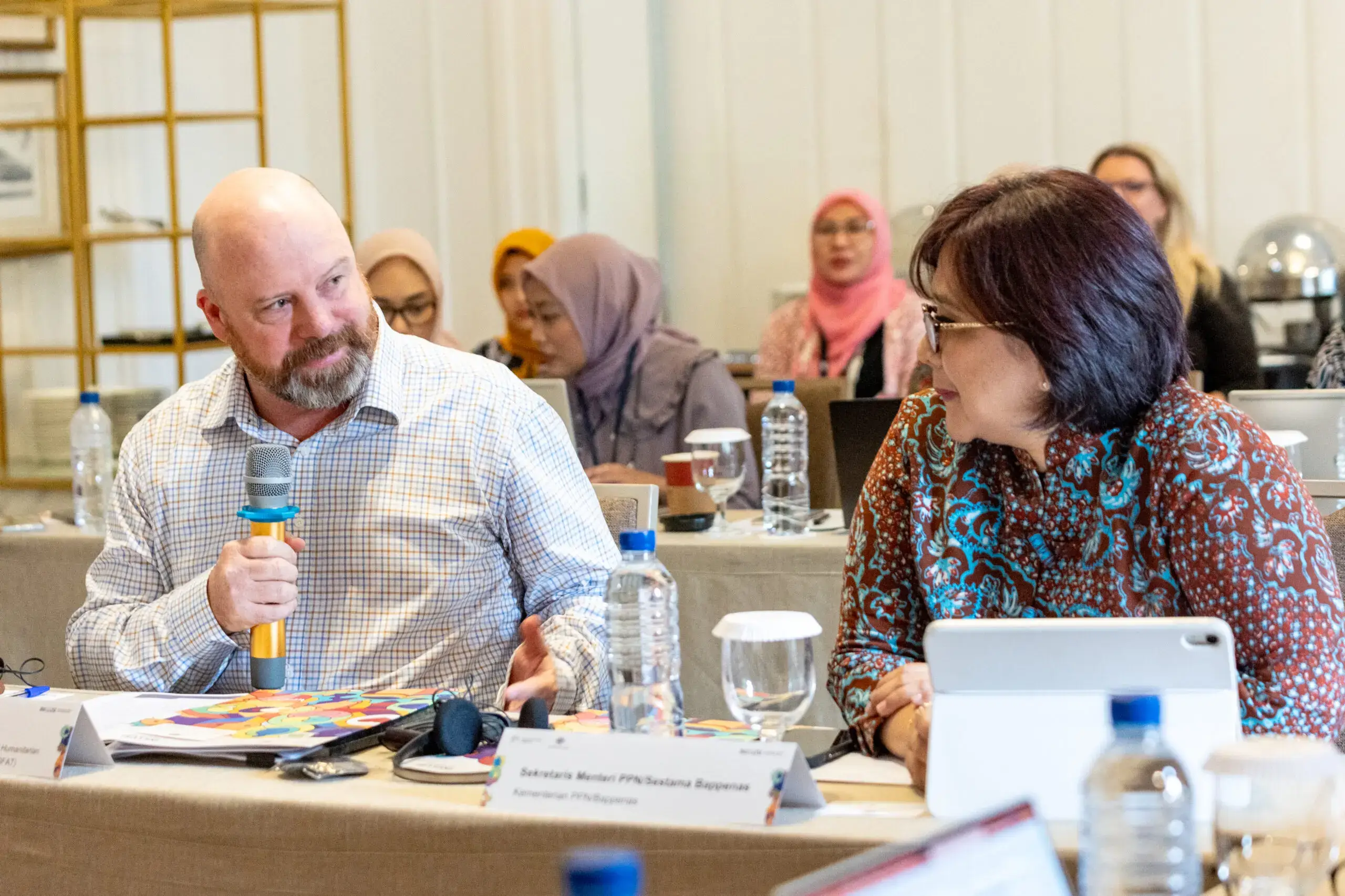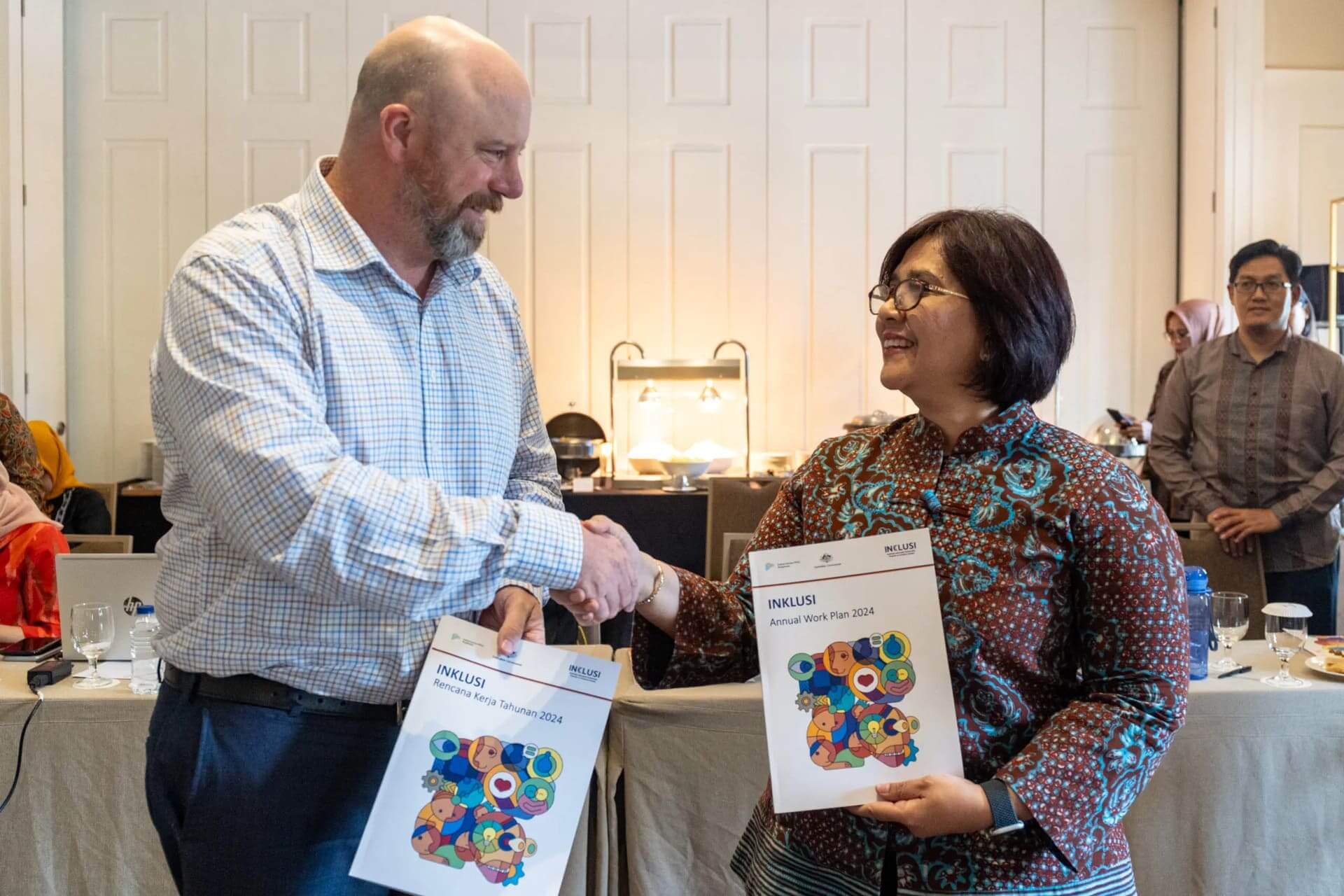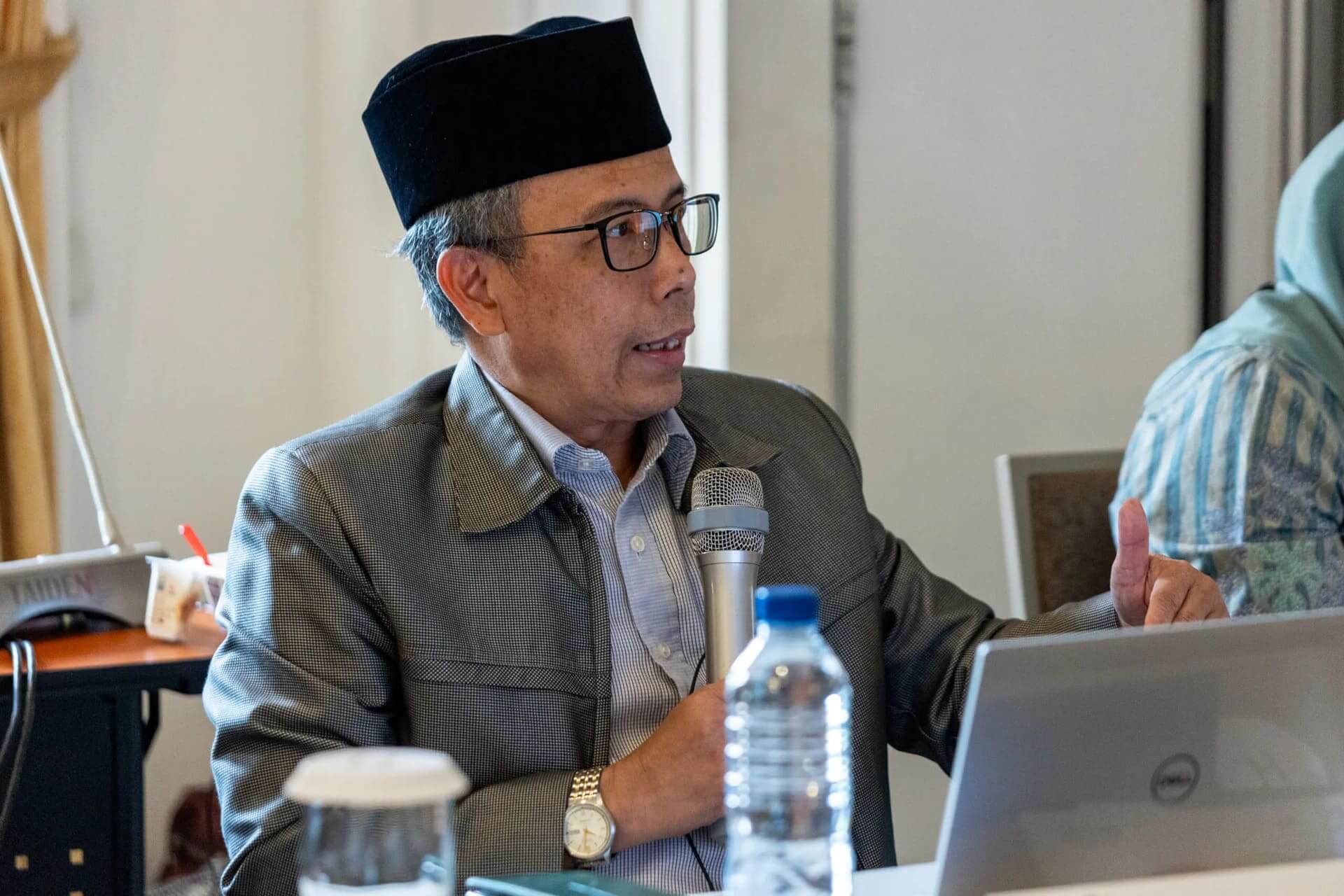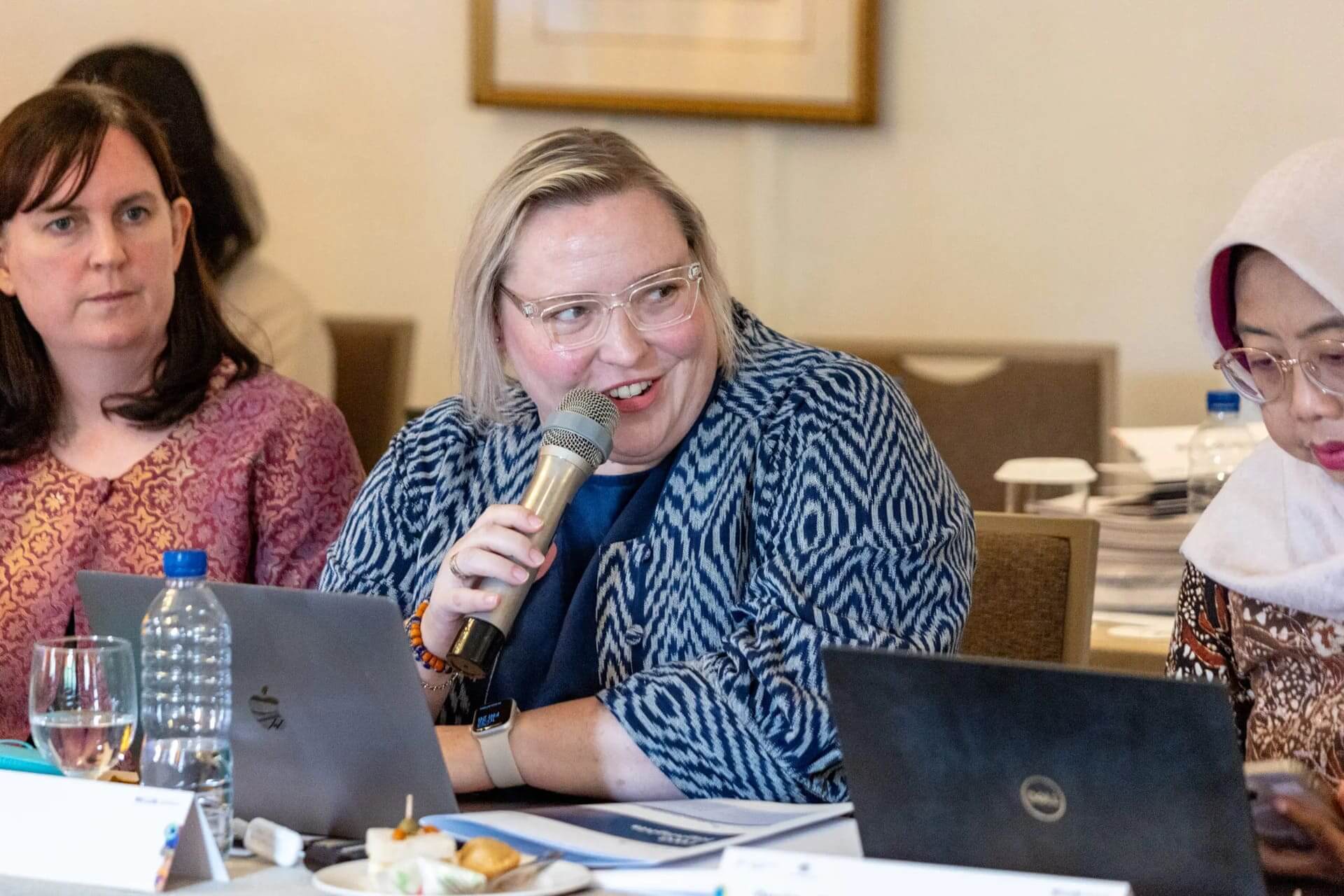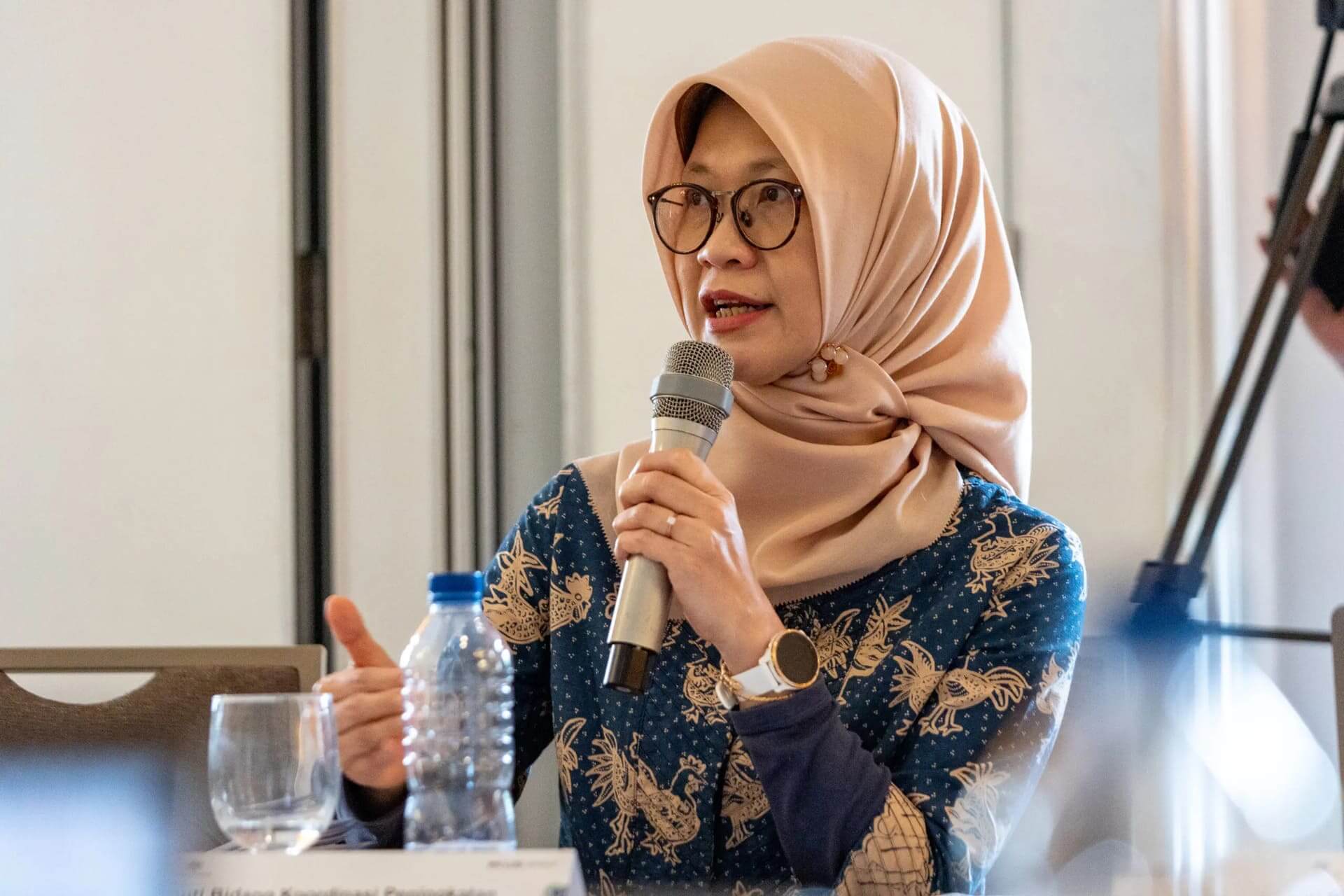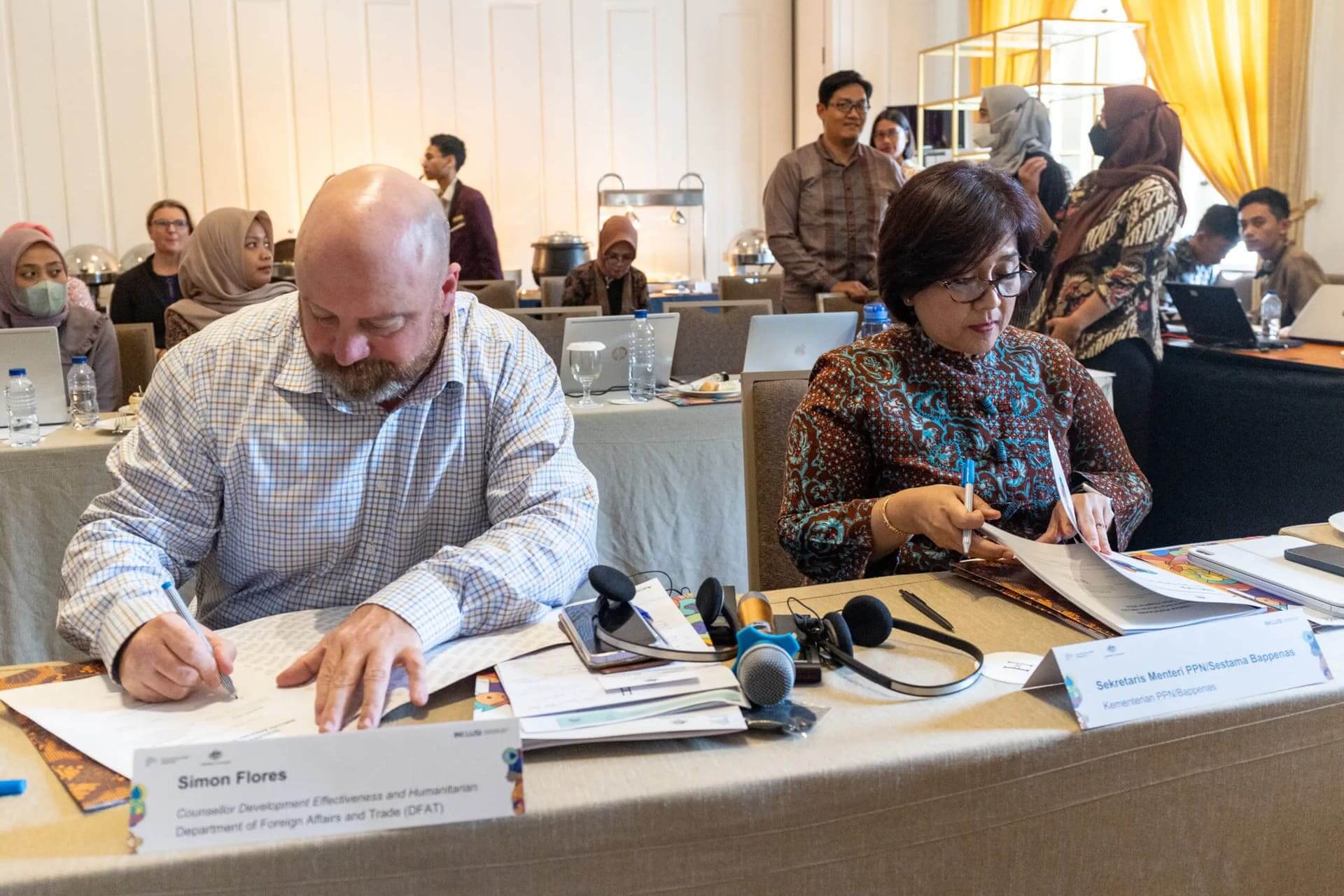On Friday, January 26, 2024, the Annual Program Steering Committee (PSC) Meeting was held in Jakarta for the Indonesia-Australia Government Partnership Towards Inclusive Society (INKLUSI) Program. This committee serves as the senior governance group, providing strategic policy direction for the INKLUSI program and partners. During this meeting, the PSC agreed on the INKLUSI Program’s 2024 Annual Work Plan, which was drafted based on the previous year’s performance evaluation and an assessment of the activities conducted in 2023.
In her opening remarks, Mrs. Teni Widuriyanti, SE, MA, Secretary of the Ministry of National Development Planning/Chief Secretary of Bappenas, expressed appreciation to the Australian Government for its continuous support in advancing gender equality, disability rights fulfilment, social inclusion, and civil society strengthening. “The INKLUSI Program is a flagship program that connects the Indonesian government with civil society organisations to facilitate broad and systemic changes to advance gender equality, disability rights, and create an inclusive society,” Mrs. Teni Widuriyanti continued.
Following Mrs. Widuriyanti’s address, Mr. Simon Flores, Counsellor Development Effectiveness and Humanitarian DFAT conveyed his appreciation for the attendees’ presence and support in sustaining this partnership. He discussed the purpose of the PSC, which is to focus on the progress and learning from the INKLUSI program and expressed hope for the approval of the 2024 Annual Work Plan at the end of the meeting.
Dr. Amich Alhumami, Deputy for Human Development, Society, and Culture, Ministry of National Development Planning, then provided a brief overview of the INKLUSI Program. The INKLUSI Program has seven priority areas to support marginalised communities, which are to access legal identity, essential services, social protection programs, and health and education, violence prevention, child marriage prevention, economic recovery, inclusive labor and employment, and inclusive participation in development. These seven priority areas align with the Indonesian Government’s Medium and Long-Term Development Plans (RPJPN-RPJMN) and with the Sustainable Development Goals (SDGs).
Continuing from Dr. Amich’s presentation, Ms. Erin Anderson, Team Leader, Ms. Rebecca McLaren, Head of MERLA, Ms. Irene Widjaya, Head of Partnerships and Policy, and Mr. Krisdeny Mahajaya, Head of Operations and Grants at INKLUSI, provided a summary of INKLUSI 2023 program achievements and the 2024 Annual Work Plan.
Ms. Anderson recounted that throughout 2023, INKLUSI Partners focused on socialisation, capacity building, advocacy, and networking, providing technical support to local governments and ministries/agencies (K/L), collaborating with the public and private sectors through strategic planning, data collection, and knowledge sharing to improve the conditions of marginalised communities, especially women, children, persons with disabilities, indigenous communities, and the elderly, in line with Indonesia’s development goals.
Ms. McLaren outlined the progress made in 2023, emphasising the use of evidence and data in planning and advocacy, selected data revealing gaps and advocating for better services for marginalised groups, and the contribution of INKLUSI Research Partners in providing data for designing and implementing CSO activities and enriching Indonesian government policies.
Prior to the PSC, in October 2023, Bappenas convened INKLUSI Technical Working Group Coordination (TWG) Meetings with Directorate Sectors of the Ministry of National Development Planning/Bappenas and related Ministries/Agencies. These meetings aimed to gather input on the 2024 Annual Work Plan, which was then discussed and agreed upon during the Partnership Management Group (PMG) meeting on November 27, 2023.
Ms. Irene Widjaya summarised the Technical Working Group (TWG) and PMG meetings. Overall, Mitra INKLUSI actively engaged in policy processes such as the TPPO Law, child marriage prevention, and elderly and disability inclusion, also supporting the Indonesian government in formulating RPJPN 2025-2045.
The First TWG emphasised the need to ensure synergy and promote collaboration with government programs such as the UPT Sentra Terpadu the women-and-child-friendly village (DRPPA) and Community Health Center (Puskesos). The Second TWG recognised INKLUSI support in child marriage prevention and violence prevention and increasing support for children and adolescents in detention centers specifically for identity rights, access to social protection, rehabilitation, and education. The Third TWG emphasises the need to work together with K/L to support inclusive employment/ labour policies. Meanwhile, the Fourth TWG discussed support for village development as well as inclusive elections and the potential for expanding areas of work in cities as well as in eastern Indonesia.
Ms. Irene Widjaya continued with a summary of the 2024 Annual Work Plan. INKLUSI remains committed to supporting gender equality, disability inclusion and social inclusion at the regional level by linking it to RPJPN 2025-2045 as the basis for the work plan. Strengthening cooperation with Bappenas, improving knowledge management, and strengthening CSO and network capacities with the main goal of achieving direct impact on marginalised groups and encouraging collective action in various initiatives.
Representatives from K/L also provided responses regarding achievements and the 2024 Annual Work Plan. Ms. Woro Srihastuti Sulistyaningrum, Deputy for Coordination of Child, Women, and Youth Development, Coordinating Ministry for Human Development and Cultural Affairs (Kemenko PMK), appreciated the increased involvement of various Ministries and Agencies in the INKLUSI Program. Kemenko PMK’s three main focuses, extreme poverty, stunting, and vocational training, are closely related to the INKLUSI Program. Strong coordination between the government, agencies, and CSOs is needed to achieve common goals.
Ms. Nida Rohmawati, Director of Productive Age and Elderly Health, Ministry of Health, reaffirmed her commitment to collaborating with INKLUSI and the importance of collaboration with health institutions from the central to local levels, regarding disability issues, prevention of violence against women and children, occupational health for migrant workers, and health services in remote areas and border islands.
Mr. Judha Nugraha, Director of the Protection of Indonesian Citizens, Ministry of Foreign Affairs, shared the current situation of migrant workers, highlighting a significant increase in cases related to human trafficking (TPPO), with increasing complexity, especially in online TPPO cases, and recurring issues faced by migrant workers. He recommended collaboration with INKLUSI regarding strengthening safe migration services, rehabilitation, and integration for returning migrant workers, and support in the development of a National Action Plan on Global Compact on Migration with hopes of providing quality solutions.
In her closing remarks, Mrs. Teni Widuriyati, SE, MA, Secretary of the Ministry of National Development Planning/Chief Secretary of Bappenas, advised that “This grant support (through INKLUSI) does involve all stakeholders, but this program cannot solve all the problems in the field.” Therefore, the INKLUSI program targets must be focused, concrete, and support must be carried out from upstream to downstream. She also commended INKLUSI’s achievements and expressed her support the INKLUSI 2024 Annual Work Plan.
In his closing speech, Simon Flores expressed his appreciation for the progress made in 2023 and the strong plans for 2024. He emphasised cooperation with the Indonesian Government at the national and local levels and recognised the importance of collaboration with other DFAT programs. He also thanked for the outstanding support and looked forward to future collaboration and better achievements. The PSC was then concluded with the approval and signing of the INKLUSI Program’s 2024 Annual Work Plan.
With the support and collaboration of the Indonesian Government, the Australian Government, and civil society organisations, the INKLUSI Program is optimistic on making a significant contribution to accelerate an inclusive and sustainable society in Indonesia.
